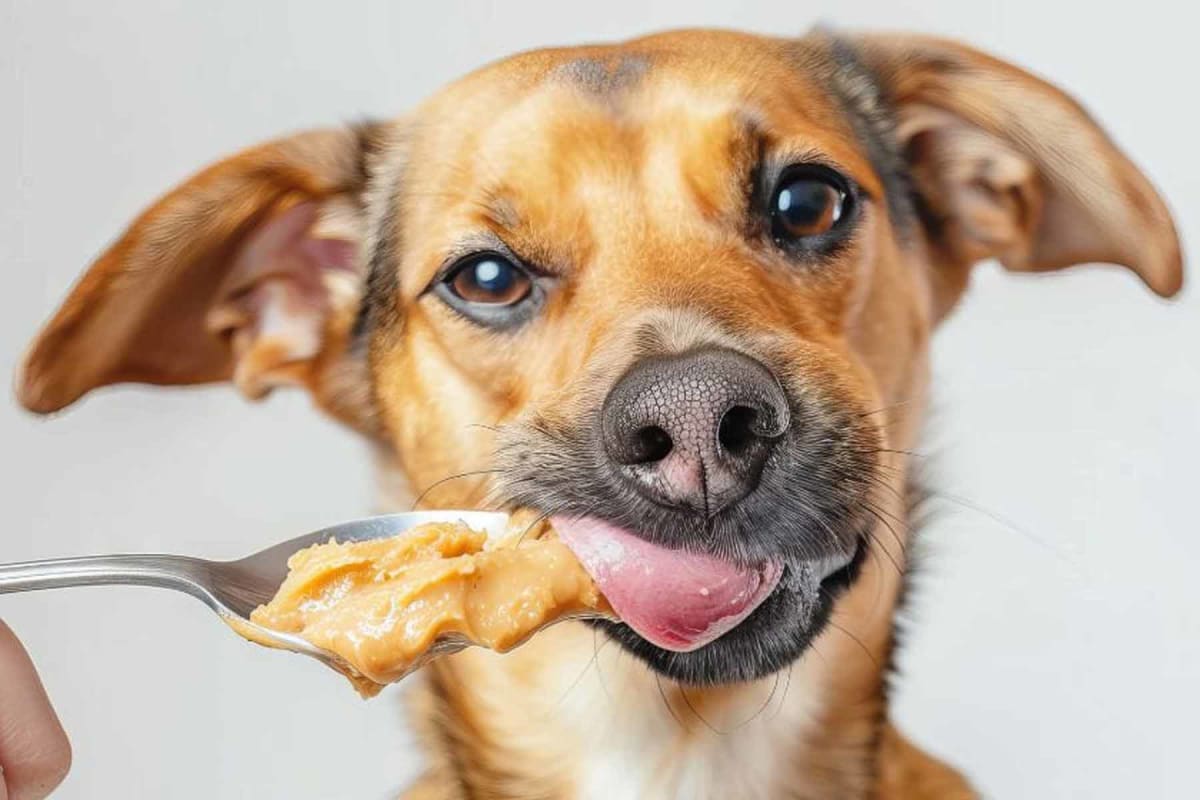
Can dogs eat peanut butter?
Can dogs eat peanut butter?
Can dogs have peanut butter?
Yes, dogs can eat peanut butter, but with important restrictions! This creamy treat can be a delightful reward for your pup, but knowing which types are safe and how much to give is crucial for your dog's health. Let's dig into everything you need to know about dogs and peanut butter—the good, the bad, and the potentially dangerous.
Can puppies have peanut butter?
Puppies can have peanut butter in very small amounts. Their developing digestive systems are more sensitive than adult dogs, so introduce peanut butter gradually and in tiny portions. A small lick from your finger is enough to start.
Monitor your puppy closely after their first taste to ensure they don't have any adverse reactions. As with adult dogs, make sure the peanut butter doesn't contain xylitol or excessive salt and sugar.
Is peanut butter good for dogs?
Peanut butter offers several benefits for most dogs when given appropriately:
Good source of protein and healthy fats
Contains vitamins B and E, niacin, and minerals like copper and manganese
Can support immune system function.
May help with brain function due to its healthy fat content.
Beyond nutrition, peanut butter serves practical purposes too. It's excellent for hiding medications, distracting dogs during grooming sessions, or as a high-value reward during training.
When is peanut butter bad for dogs?
Peanut butter becomes dangerous for dogs in several situations:
When it contains xylitol: This artificial sweetener is extremely toxic to dogs, causing rapid insulin release that can lead to hypoglycemia, seizures, liver failure, and even death. Xylitol may be listed as "birch sugar" on some labels, so be vigilant.
When fed in excess: Peanut butter is high in fat and calories. Overfeeding can lead to obesity and potentially pancreatitis, a serious inflammatory condition.
For dogs with certain health conditions: Dogs with kidney problems, obesity, pancreatitis, diabetes, or those on special diets should avoid peanut butter or have it only with veterinary approval.
What peanut butter is safe for dogs?
The safest peanut butter for dogs is simple and natural. Consider making it yourself, or look for products with minimal ingredients—ideally just peanuts, or peanuts and a small amount of salt. Avoid brands with added sugars, artificial sweeteners (especially xylitol), hydrogenated oils, or preservatives.
How to safely give peanut butter to your dog
Follow these guidelines to safely share peanut butter with your dog:
Check the ingredients: Always verify the peanut butter doesn't contain xylitol or other harmful additives.
Start small: Introduce peanut butter gradually, especially if it's your dog's first time trying it.
Use it strategically: Smear it inside a Kong toy, on a lick mat, or use it to hide medications.
Make it a special treat: Reserve peanut butter for training rewards or occasional treats, not as a regular part of their diet.
Monitor for reactions: Watch for any signs of digestive upset or allergic reactions, which are rare but possible.
How much peanut butter can my dog have?
Portion control is essential when giving peanut butter to dogs. If your dog has health concerns or is on a weight management plan, consult your veterinarian for personalized guidance on appropriate serving sizes. For healthy dogs, follow these guidelines based on your dog's size:
Small dogs: No more than ½ teaspoon up to twice a day
Medium and large dogs: No more than 1 teaspoon up to twice a day
Remember the 10% rule: Treats, including peanut butter, should make up no more than 10% of your dog's daily caloric intake. For most dogs, this means peanut butter should be an occasional treat, not a daily indulgence.

Other safe treats
While peanut butter is a popular choice, there are many other safe and healthy foods your dog can eat as an occasional treat, including:
Small pieces of cooked lean chicken or turkey (boneless, skinless, and without seasonings)
Carrot sticks or apple slices (without seeds)
Blueberries or strawberries
Cooked white rice
Commercial dog treats specifically formulated for canine nutrition
Remember that the best treat for your dog is your attention and affection. Combine healthy treats with plenty of play, exercise, and cuddle time for a happy, well-balanced pup.